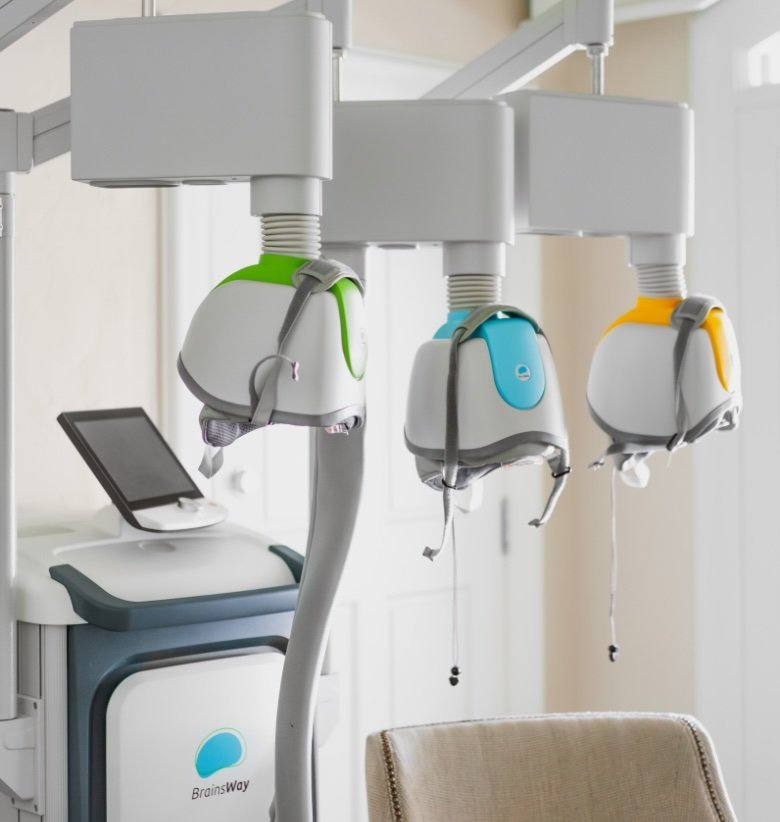My Experience with TMS
My TMS Experience:
In 2015, I sought Transcranial Magnetic Stimulation (TMS) treatment for my treatment-resistant depression, which had developed as a result of my substance use disorder. Specifically, I had been struggling with Adderall abuse, which had severely impacted my brain's natural dopamine system. As a result, the psychiatric medications that had previously been effective in managing my depression had stopped working. At the time, TMS was a relatively new therapy and I was desperate to break out of the wave of anhedonia that was making my life miserable.
My desperation to start TMS treatment was fueled by the fact that I had lost the ability to feel pleasure in any of the activities and experiences that had once brought me joy. Fortunately, my insurance provider quickly approved the TMS treatment, and I was able to start the sessions without delay. Astonishingly, I began to experience some relief from my depression after just 10 sessions.
The change in my affect must have been noticeable, as my doctor had a bewildered reaction prior my 11th session. When he came out to get me for the appointment, he stopped abruptly, looked at me, and asked rhetorically, "You feel better, don't you?" It was a powerful moment of recognition, as even my doctor could see the positive impact TMS was having on how I was feeling. .
I went on to complete a total of 30 TMS sessions. The treatment was transformative for me. To this day, I have never experienced the same depths of depression that I faced prior to TMS. While I still have ups and downs, as everyone does, I never reached the depths of depression experienced prior to TMS.
The Evolution of TMS:
In the decade since my TMS treatment, the therapy has undergone some significant advancements. The technology behind TMS has gotten way more sophisticated, allowing for much more precise and targeted stimulation of specific brain regions. Of most significance has been the introduction of deep TMS, which uses special coils that can stimulate deeper brain structures than traditional TMS. The FDA has gone on to approve TMS treatment for a wider range of mental health conditions, like Anxiety, obsessive-compulsive disorder (OCD) and post-traumatic stress disorder (PTSD), in addition to depression. The FDA approval is significant as it allows for TMS to be covered by insurance for the treatment of Anxiety and OCD.
Another significant advancement has been the integration of MRI scans to guide TMS treatment. By mapping out a patient's unique brain structure and activity patterns, physicians can now precisely target the magnetic pulses to optimize therapeutic outcomes.
By focusing the TMS pulses on these specific regions, doctors can effectively modulate brain activity and promote the restoration of healthy neural functioning. This customized approach to TMS therapy has the potential to greatly enhance its efficacy and provide patients with a treatment plan that is uniquely adapted to their individual needs. In recent years, newer TMS protocols have emerged that offer the potential for faster treatment and less disruption to patients' daily lives. One such approach is accelerated TMS, which involves multiple sessions per day, typically administered over a shorter overall treatment period.
Why I Advocate for Considering TMS:
As a mental health professional who has personally undergone TMS treatment for depression and witnessed its positive effects on several of my clients, I often recommend considering TMS as a treatment option for individuals struggling with anxiety, OCD, or depression. My own experience with TMS has been incredibly positive, and I have seen firsthand how it can help alleviate symptoms and improve quality of life for those who have not found relief through other means.
In my practice, I frequently work with clients who are hesitant or resistant to taking psychiatric medications for various reasons. For these individuals, TMS can be a particularly appealing treatment option, as it is a non-invasive and drug-free approach to addressing mental health concerns.
When discussing treatment options with my clients, I make sure to provide them with comprehensive information about TMS, including its potential benefits, risks, and what the treatment process entails. I emphasize that while TMS may not be suitable for everyone, it has proven to be a highly effective intervention for many people, particularly those who have not responded well to medication or have experienced adverse side effects.
Ultimately, my goal is to help my clients make informed decisions about their mental health treatment, and I believe that TMS should be considered as a viable option alongside other evidence-based therapies. By sharing my own experiences and those of my clients who have benefited from TMS, I hope to raise awareness about this innovative treatment modality and encourage more individuals to explore whether it could be right for them.


